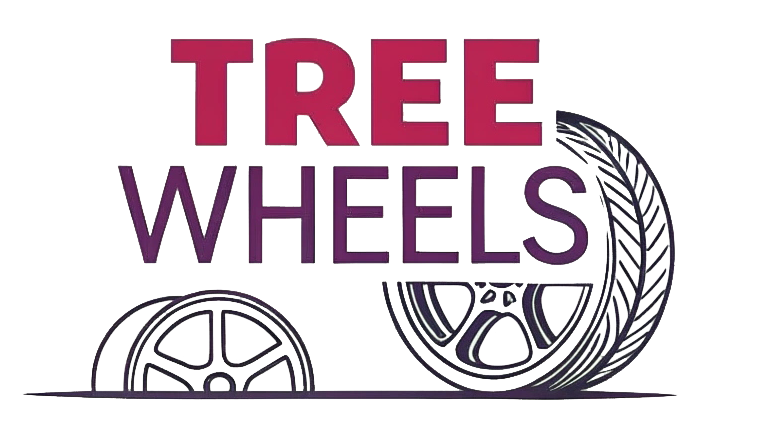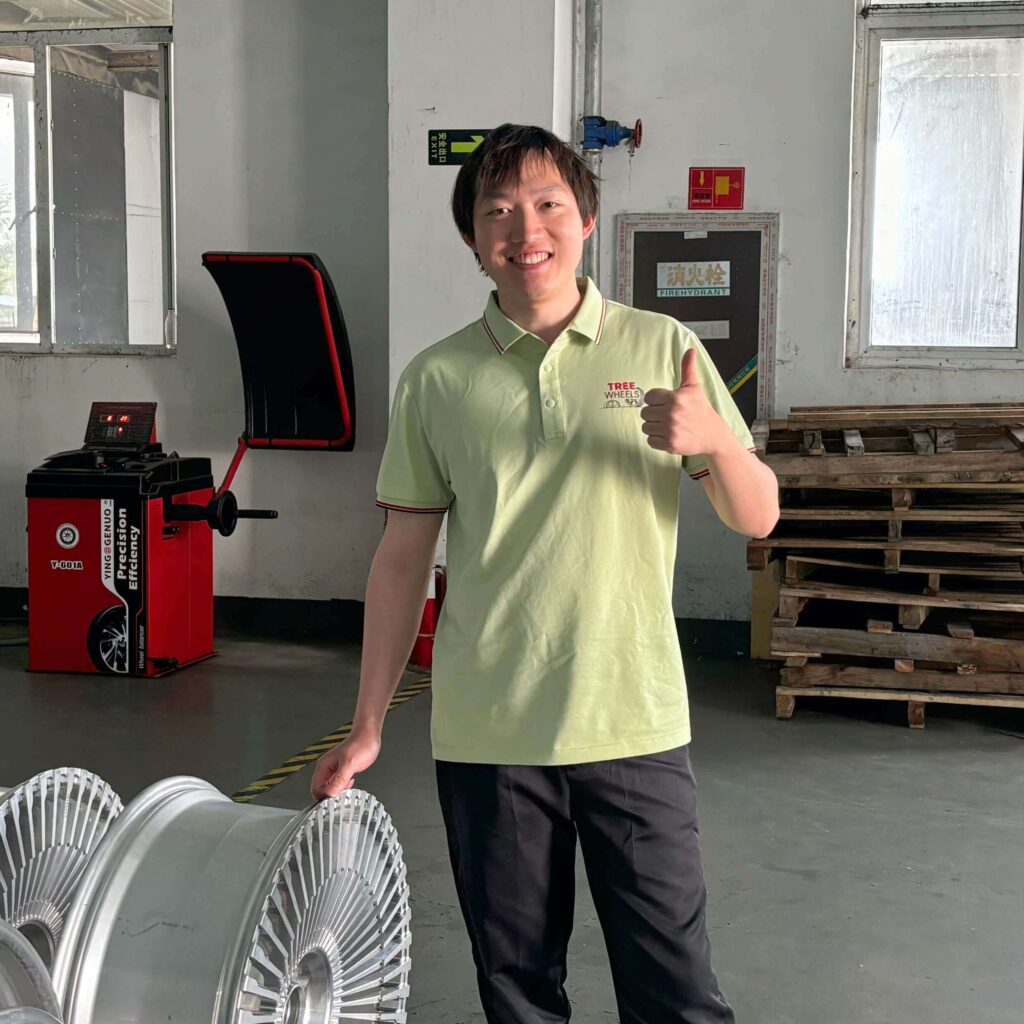I’ve customized many cars, but new wheels can bring surprises. Can aftermarket wheels cause vibration?
Aftermarket wheels can cause vibration if improperly balanced, misaligned, or mismatched. Correct specs and professional installation prevent issues.

I love the thrill of new wheels, but vibrations are a buzzkill. Let’s explore why this happens and how to fix it.
Why Are My New Wheels Vibrating?
I once installed new wheels and felt a shake at 60 mph. It was frustrating. Why do new wheels vibrate?
New wheels vibrate due to poor balancing, incorrect fitment, or low-quality materials. Proper installation and quality wheels solve this.

Common Causes of Vibration
New wheels can shake if not balanced correctly. I’ve seen unbalanced wheels wobble at high speeds. Incorrect fitment, like wrong bolt patterns, also causes issues. Low-quality wheels may have uneven weight distribution. At Tree Wheels, we test every forged wheel to ensure balance. Always use a trusted installer to avoid these problems.
Fixing the Issue
Check wheel balance first. I take my car to a shop with a balancing machine. Ensure the wheels match your car’s specs—hub size, offset, and diameter. If vibrations persist, inspect for bent rims or loose lug nuts. Quality aftermarket wheels, like our customized forged ones, reduce risks when properly installed.
| Cause | Symptom | Solution |
|---|---|---|
| Poor Balancing | Shaking at speed | Rebalance wheels |
| Incorrect Fitment | Uneven vibration | Verify specs |
| Low-Quality Wheels | Persistent wobble | Use high-quality rims |
This table lists vibration causes and fixes. It’s a quick guide for troubleshooting.
What Is the Disadvantage of Installing Aftermarket Wheels on a Vehicle?
I’ve swapped wheels for style, but there’s a catch. What are the downsides of aftermarket wheels?
Aftermarket wheels can cause vibration, reduce ride comfort, or void warranties if poorly chosen. Quality and fitment matter.

Potential Drawbacks
Aftermarket wheels can look amazing but have risks. I once chose cheap wheels and got vibrations. Poor fitment strains suspension, reducing comfort. Low-quality wheels wear faster or crack. Some car warranties exclude aftermarket parts. Always check your warranty terms. High-quality wheels, like Tree Wheels’ forged rims, minimize these issues.
Choosing Wisely
Pick wheels with correct specs—bolt pattern, offset, and size. I always double-check with my car’s manual. Invest in reputable brands. Our Tree Wheels products undergo strict testing for durability. Professional installation is key. Avoid oversized wheels that stress your car. Smart choices keep disadvantages low and performance high.
| Disadvantage | Impact | Prevention |
|---|---|---|
| Vibration | Shaky ride | Proper balancing |
| Reduced Comfort | Harsh ride | Correct fitment |
| Warranty Issues | Voided coverage | Check warranty terms |
This table summarizes drawbacks and prevention. It helps you make informed decisions.
Why Is My Car Shaking After Getting New Tires?
I felt my car shake after a tire swap and panicked. Why does this happen with new tires?
New tires cause shaking if unbalanced, misaligned, or paired with faulty wheels. Balancing and alignment fix most issues.

Tire-Related Causes
New tires can shake if not balanced properly. I’ve had tires vibrate because the shop skipped balancing. Misaligned wheels also cause shaking, especially at highway speeds. Faulty aftermarket wheels or incorrect fitment worsen the problem. Even high-quality tires need proper setup. Always balance and align after installing new tires.
Solutions and Maintenance
Take your car to a shop for tire balancing and wheel alignment. I do this every time I get new tires. Check if your wheels match the tires’ specs. Inspect for debris or damage on rims. Regular maintenance, like checking tire pressure, prevents future shakes. Quality wheels, like ours at Tree Wheels, ensure a smoother ride.
| Issue | Cause | Fix |
|---|---|---|
| Unbalanced Tires | Shaking at speed | Balance tires |
| Misalignment | Uneven pull | Align wheels |
| Faulty Wheels | Persistent shake | Inspect/replace rims |
This table outlines tire-related shaking causes and fixes. It’s a handy reference.
Can Rims Cause Vibration?
I’ve wondered if rims alone could ruin a smooth ride. Can rims really cause vibration?
Rims cause vibration if unbalanced, damaged, or poorly fitted. High-quality, well-installed rims prevent shaking.

How Rims Contribute
Rims can trigger vibration if not balanced. I’ve seen bent rims shake violently. Incorrect fitment, like wrong offset, throws off alignment. Low-quality rims may have manufacturing flaws. At Tree Wheels, we forge rims to precise specs, testing for balance. Even OEM rims can vibrate if damaged, so regular checks are crucial.
Preventing Rim Issues
Choose rims with correct specs for your car. I always verify bolt patterns and hub size. Use high-quality rims from trusted suppliers. Professional installation ensures proper fit. Inspect rims regularly for bends or cracks. Our Tree Wheels forged rims are built for durability, reducing vibration risks with proper care.
| Rim Issue | Effect | Solution |
|---|---|---|
| Unbalanced Rims | Wobble at speed | Balance rims |
| Damaged Rims | Constant shaking | Repair/replace rims |
| Poor Fitment | Uneven vibration | Verify specs |
This table shows rim-related vibration issues and solutions. It guides you to a smoother ride.
Conclusion
Aftermarket wheels can cause vibration if not balanced or fitted correctly. Tree Wheels delivers flawless forged wheels for your car.



